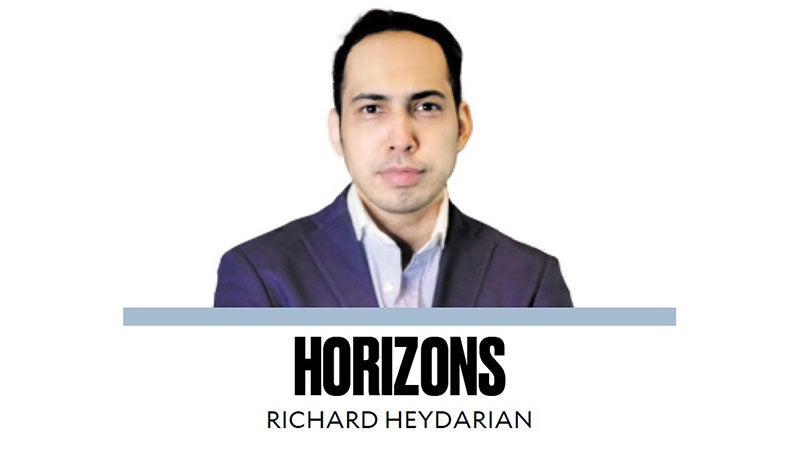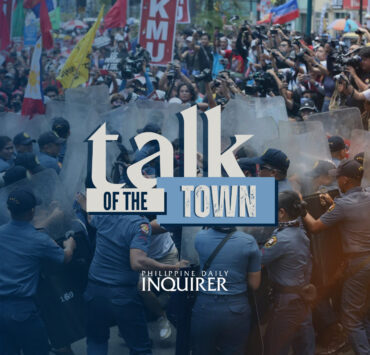ICC and PH’s international law stewardship

The Hague/Brussels—“It’s game over, no chance he will ever return home,” an unimpeachable source told me, referring to former president Rodrigo Duterte, just hours after I arrived at the world’s capital of international law. “He will likely spend the rest of his life here, either in trial or as a convicted [international] criminal … I also doubt his current lawyer [Nicholas Kaufman] will last for long,” the source added, confident that the severity of Duterte’s case would prove too daunting for even the most seasoned lawyers.
Their hopeless insistence on jurisdiction-related issues, hapless antics on the circumstances surrounding Duterte’s arrest, and subsequent transfer to The Hague, is almost certain to be dismissed by the international court. Mind you, this was the same source that confirmed to me last year that there were ongoing communications between the International Criminal Court (ICC) and the Philippine government regarding the implementation of arrest warrants for principal architects of the bloody drug war.
From trusted sources, I also managed to gather information about the precise logistics of Duterte’s transfer from Manila to The Hague via at least, two transit points. As a bonus, I was also informed about the exact location of the elusive Harry Roque—the notorious former presidential spokesman and ex-human rights defender who is applying for asylum in the Netherlands. Experts remain skeptical about his quixotic quest, especially given the nature of potential criminal charges he is likely to face in the Philippines for his suspected involvement with shady Chinese online casino operators. Reportedly, the Netherlands had also its reservations after granting asylum to former communist leader Jose Maria Sison, who created countless tensions in bilateral relations with the Philippines throughout the decades.
Interestingly, I also had a chance to meet Duterte supporters upon visiting the former president’s detention facility. Although one or two individuals tried to taunt me—insisting on the disinformation surrounding my comments on that whole “human development index” brouhaha—almost all of them were extremely cordial and even friendly. I even had “group Hague” with some after extending my hand in peace. Some even took a selfie with me and kindly asked for greetings for their fellow OFWs. Despite all the online noise and trolling, Duterte supporters, in my experience, are overwhelmingly polite in person.
I was, however, intent on catching up with Kristina Conti, who has been one of the chief defenders of the victims of extrajudicial killings and an ICC-accredited assistant to counsel. Luckily, we were both heading to Brussels on the same day, so I managed to catch her talk about the ICC case in the capital of the European Union. She was also equally confident about Duterte’s grim prospects: the high probability that he would be denied any “interim release” by the ICC and crucially, “spend the rest of his days” thousands of miles away from home. No amount of “rallying” or “worldwide” gatherings by Duterte supporters were going to change this almost certain scenario. More than half a dozen other principals of alleged extrajudicial killings, most notably Sen. Ronald dela Rosa, will almost certainly also face arrest warrants in the future, she added.
Reassured by the prospects of justice for thousands of voiceless victims, I carried a “big picture” message during all my meetings with experts and officials in Brussels, which included folks from the EU, the European Parliament, the EU-Asean Business Council, as well as from major think tanks, such as the European Institute for Asian Studies and the Konrad-Adenauer-Stiftung.
The Philippines is far from perfect. The Marcos administration must rejoin the ICC soon and provide a principled justification for its cooperation on the Duterte case.
But we are, nevertheless, a leading champion of international law in Asia. From the 2016 arbitral tribunal award ruling at The Hague, where we challenged mighty China for our sovereign rights in the West Philippines Sea, to this year’s ICC trial against one of the most notorious populists on earth, we have repeatedly proven our commitment to a rules-based international order. By all indications, almost all the officials and experts I spoke to in Brussels made it clear that the Philippines was now “in our good books”—namely a gritty democracy and a prized strategic partner for Europe.

















